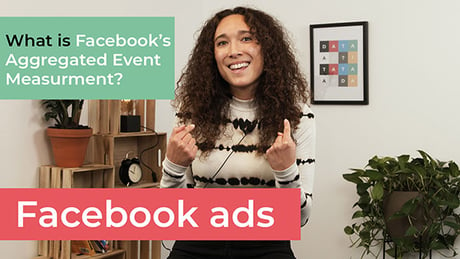-
Written by Christopher Van Mossevelde
Head of Content at Funnel, Chris has 20+ years of experience in marketing and communications.
If you’re advertising on Facebook, you may have heard about their Aggregated Events Measurement, or AEM, that came out earlier in 2021.
This was a direct response to Apple’s iOS 14.5 update that would significantly limit the amount of data that could be sent back and used from the apps on Apple devices to create targeting/retargeting ads and audiences.
So you can imagine how Facebook reacted when they announced this.
We wanted to cover it quickly for those wondering what it is and how it’s impacting your advertising and give our recommendations for how to help so you can still get those conversions.
What is AEM?
Aggregated Events Measurement is a new way of aggregating and presenting data to advertisers about their campaigns' performance. More importantly, however, it’s a new way of choosing the conversion events you’d like Facebook to optimize for.
Facebook now limits you to 8 conversion events to optimize on. For example, a click, add to cart, or a complete purchase, are separate conversion events. You’ll need to order them in order of importance. This has to do with the limitations that Apple is putting on the amount of data that can be sent back.
What does it mean for your data?
What does it mean for the advertising platforms that rely on the data? It means less granular data and just less data in general. The consequences are smaller audiences and less user understanding, and the platforms’ AI will need to adapt to fewer data points and conversion events. This makes it harder for your ads to leave the learning period, slower optimizations, and decreased performance.
Three things you can do to ease the impact on your advertising
Many unknowns exist about how these new restrictions will impact our advertising. However, we know a few things we’re doing here at Funnel to help ease the impact on our advertising.
Our three recommendations are:
- Start with ordering your conversion events by the ones you think will give you volume while at the same time not being a vanity metric that Facebook will then optimize on. This will help ensure that your campaigns aren’t stuck in the learning period for so long, and you can start to adjust and optimize your campaigns.
- We will lose some conversion tracking, and Facebook will have fewer data points to optimize on, but in-platform data will remain unaffected. This means we can still work off impressions, interactions, views, clicks, and other metrics in the same app. Moving forward, optimizing on this data will be a safe option with sufficient volume to make decisions on.
- Incorporate first-party data into your mix. If you have a list of users who have signed up or converted in the past, use it to build a retargeting audience.
Of course, there is a lot more to it than this, so if you’d like to learn more, we’ll link some additional resources below to continue learning.
-
Written by Christopher Van Mossevelde
Head of Content at Funnel, Chris has 20+ years of experience in marketing and communications.
